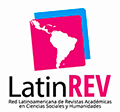Tecnologias da Tradução e Pedagogia Colaborativa
DOI :
https://doi.org/10.11606/issn.2317-9511.v34i0p48-80Mots-clés :
Ensino de tradução, Formação de tradutores, Pedagogia colaborativa, Sistemas de memória de traduçãoRésumé
Partindo do pressuposto de que uma tradução é o resultado da influência de vários “colaboradores” que dela participam direta ou indiretamente, tais como clientes, tradutores, terminólogos, revisores, público-alvo, dentre outros, este trabalho descreve possibilidades para a adoção da pedagogia colaborativa na formação de tradutores, viabilizada pelo uso de funcionalidades específicas presentes em sistemas de memória de tradução.
##plugins.themes.default.displayStats.downloads##
Références
CHESTERMAN, A. Bridge Concepts in Translation Sociology. In: WOLF, M.;FUKARI, A. Constructing a Sociology of Translation. Amsterdam/ Philadelphia: John Benjamins, 2007:171–183.
CORDINGLEY, A.; MANNING, C. F. (org.) Collaborative Translation: From the Renaissance to the Digital Age.London/New York: Bloomsbury Publishing, 2017.
CORMIER, M. En torno a una pedagogía centrada en el estudiante: el método “Aprendizaje através de problemas” aplicado ala terminología. Onomazein,nº 3, 1998, pp.177-193.Disponível em: <http://onomazein.letras.uc.cl/03_Numeros/N3/N3.html>. Acesso em: 22maio 2019).
CRONIN, M. A New Ecology for Translation: Collaboration and Resilience. In: CORDINGLEY, A.; MANNING, C. F. (org.) Collaborative Translation: From the Renaissance to the Digital Age.London/New York: Bloomsbury Publishing, 2017: 233-246.
ECHEVERRI, Á. Énième plaidoyer pour l’innovation dans les cours pratiques de Traduction. Préalables à L’innovation? Montréal: TTR: Traduction, Terminologie, Rédaction, vol. 21, nº1, 2008, pp. 65–98. Disponível em: <http://id.erudit.org/iderudit/029687ar>. Acesso em: 02out. 2018.
ESQUEDA, M. D. Ensino de Tradução: Culturas Pedagógicas. Trabalhos em Linguística Aplicada, Campinas, vol. 57,nº 2,2018, p. 1244-1273. Disponível em: <https://periodicos.sbu.unicamp.br/ojs/index.php/tla/article/view/8651880/18340>.Acesso em: 03jan. 2019.
ESQUEDA, M. D. et al. Examinando o uso dos sistemas de memória de tradução na sala de aula de tradução. Cadernos de Tradução, vol.37,nº 3, 2017, pp. 160-184.Disponível em: <https://periodicos.ufsc.br/index.php/traducao/article/view/2175-7968.2017v37n3p160/34849>.Acesso em: 03jan. 2019.
ESQUEDA, M. D.; STUPIELLO, E. N. A. A critical approach proposal for training translation memory systems in translator education programs. FORUM. Revue internationale d’interprétation et de traduction/International Journal of Interpretation and Translation John Benjamins,vol. 14, nº1, 2016,pp. 79-99.
ESQUEDA, M. D.; OLIVEIRA, K. I.Crenças e concepções do tradutor em formação. Tradução em Revista, vol. 14, nº 1, 2013, pp. 138-166.Disponívelem:<https://www.maxwell.vrac.puc-rio.br/22051/22051.PDFXXvmi=>.Acesso em: 22maio 2019.
GILE, D. Basic concepts and models for interpreter and translator training. Amsterdam/Philadelphia: John Benjamins Publishing, 2009.
GONZÁLEZ-DAVIES, M. A Collaborative Pedagogy forTranslation. In: VENUTI, L. (org.) Teaching Translation: Programs, Courses, Pedagogies.New York: Routledge, 2017. p.71-78.
JIMÉNEZ-CRESPO, M. Á. Translation Crowndsourcing: Research Trends and Perspectives. In: CORDINGLEY, A.; MANNING, C. F. (org.) Collaborative Translation: From the Renaissance to the Digital Age.London/New York: Bloomsbury Publishing, 2017. p.192-211.
KIRALY, D.C. From Assumptions about Knowing and Learning to Praxis in Translator Education. InTRAlinea. Special Issue: Challenges in Translation Pedagogy,2014, pp. 1-9. Disponível em: <http://www.intralinea.org/print/article/2100>. Acesso em: 03jan. 2019.
KIRALY, D.C.. A Social Constructivist Approach to Translator Education:Empowerment from Theory to Practice.Manchester: St. Jerome, 2000.
KIRALY, D.C. Pathways to Translation: Pedagogy and Process. Kent, Ohio, EUA: Kent State University Press, 1995.
MCDONOUGHDOLMAYA, J. The Ethics of Crowdsourcing. Linguistica Antverpiensia, nº 10, 2011, pp. 97–111. Disponível em:
TradTerm, São Paulo, v. 34, outubro/2019, p. 48-80 www.revistas.usp.br/tradtermtts.uantwerpen.be/index.php/LANS-TTS/article/view/279/177>.Acesso em: 22maio 2019.
PITKÄSALO, E.;KETOLA, A. Collaborative Translation in a Virtual Classroom: Proposal for a Course Design. Transletters. International Journal of Translation and Interpreting, vol.1, nº 1,2018, pp. 93-119.Disponível em: <https://www.uco.es/ucopress/ojs/index.php/tl/article/view/11035>.Acesso em: 02fev. 2019.
PYM, A. Translation Research Terms: A Tentative Glossary for Moments of Perplexity and Dispute. In:PYM, A. Translation Research Projects 3, Tarragona: Intercultural Studies Group, 2011:75-110. Disponível em: <http://www.intercultural.urv.cat/media/upload/domain_317/arxius/TP3/isgbook3_web.pdf>.Acesso em: 03mar. 2019.
WILLIAMS, J.; CHESTERMAN, A. The Map:A Beginner’s Guide to Doing Research in Translation Studies. Manchester: St. Jerome, 2002.
WENGER, E. Communities of practice: Learning as a social system. Systems Thinker, vol. 9, nº 5, 1998,pp. 1-10. Disponível em: https://scholar.google.ca/scholar?hl=en&as_sdt=0%2C5&q=Communities+of+practice%3A+Learning+as+a+social+system&btnG=. (22/05/2019).
WOLF, M.;FUKARI, A.(org.)Constructing a Sociology of Translation. Amsterdam/Philadelphia: John Benjamins, 2007
Téléchargements
Publiée
Numéro
Rubrique
Licence
(c) Copyright Marileide Dias Esqueda 2022

Ce travail est disponible sous licence Creative Commons Attribution - Pas d’Utilisation Commerciale - Partage dans les Mêmes Conditions 4.0 International.
Autores que publicam nesta revista concordam com os seguintes termos:
- Autores mantém os direitos autorais e concedem à revista o direito de primeira publicação, com o trabalho simultaneamente licenciado sob a Licença Creative Commons Attribution BY-NC-SA que permite o compartilhamento do trabalho com reconhecimento da autoria e publicação inicial nesta revista.
- Autores têm autorização para assumir contratos adicionais separadamente, para distribuição não-exclusiva da versão do trabalho publicada nesta revista (ex.: publicar em repositório institucional ou como capítulo de livro), com reconhecimento de autoria e publicação inicial nesta revista.
- Autores têm permissão e são estimulados a publicar e distribuir seu trabalho online (ex.: em repositórios institucionais ou na sua página pessoal) a qualquer ponto antes ou durante o processo editorial, já que isso pode gerar alterações produtivas, bem como aumentar o impacto e a citação do trabalho publicado (Veja O Efeito do Acesso Livre).








